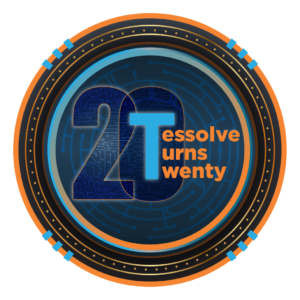With the regular invention of technology, the competition for producing more complex devices is increasing to ease customers’ lives. The production of these devices requires more advanced processing nodes and chips for better performance.
As technology advances, semiconductor devices continue to push the boundaries of what’s possible. The advent of advanced digital process nodes, particularly those below 10 nanometers (nm), has revolutionized the semiconductor industry. These nodes enable the integration of more transistors, resulting in higher performance and increased device complexity. However, with these advancements come unique challenges in testing these intricate circuits. In this blog, we will delve into how advanced digital process nodes contribute to semiconductor test innovations. We will also demonstrate how the invention of advanced digital process nodes helped Tessolve, a top semiconductor company in USA, to innovate its semiconductor testing.
Advanced Digital Process Nodes Contribute to Semiconductor Test Innovations
Let’s explore the contribution of the advanced digital process nodes in semiconductor test innovation.
Increased Device Complexity
With advanced digital process nodes, integrating more transistors becomes possible, leading to highly complex digital circuits. While this paves the way for enhanced functionality, it poses significant testing challenges. Semiconductor test innovations are crucial for developing effective techniques and methodologies to test these complex circuits. Advanced algorithms and tools are employed to identify and diagnose faults, ensuring the reliable functionality of fabricated chips.
Higher Performance and Speed
Advanced process nodes result in faster and more powerful digital devices. However, to guarantee their intended performance levels, rigorous testing is imperative. Semiconductor test innovations focus on developing specialized test patterns and methodologies to validate the speed and functionality of these devices. By stressing the devices at high speeds, these innovations ensure that the devices meet the performance requirements and function reliably.
Shrinking Margins and Signal Integrity
As process nodes shrink, the proximity between transistors decreases, posing challenges in maintaining signal integrity. Issues like crosstalk, noise, and power integrity become more critical. Semiconductor test innovations play a vital role in addressing these challenges. Advanced test structures and techniques are developed to measure and validate signal integrity accurately. By effectively identifying and resolving these issues, semiconductor test innovations contribute to the overall reliability and functionality of the devices.
Manufacturing Variability and Yield
Advanced process nodes introduce increased manufacturing variability due to the intricacies involved in fabrication. This variability can lead to reduced manufacturing yield, necessitating innovative test methodologies. Semiconductor test innovations employ advanced statistical techniques and built-in self-test (BIST) features to identify and diagnose process variations. By effectively addressing manufacturing variability, these innovations enhance the overall yield, ensuring that more chips meet the quality standards.
Test Cost Reduction
Advanced digital process nodes can lead to increased test costs due to the growing complexity of testing and the need for more advanced equipment. To address this, semiconductor test innovations focus on developing cost-effective solutions. These include optimized test time reduction, efficient test pattern generation, and improved fault coverage techniques. By minimizing test costs while ensuring high-quality and reliable chips, semiconductor test innovations contribute to the overall competitiveness of semiconductor manufacturers.
Read More: Role of DFT in Designing High-Quality PCB
Innovative Test Innovation at Tessolve Powered by Advanced Digital Process Nodes
In the fast-paced world of semiconductor testing, Tessolve has emerged as a pioneer, leveraging the profound impact of advanced digital process nodes to fuel its innovation. By embracing the cutting-edge technologies offered by these nodes, Tessolve has redefined the boundaries of semiconductor testing, leading to breakthroughs and unmatched efficiency.
Advanced digital process nodes have opened up a new realm of possibilities for Tessolve. These nodes have revolutionized the semiconductor landscape with smaller transistor sizes, increased density, and improved power efficiency. Tessolve’s engineers can now design and implement once inconceivable and highly sophisticated test methodologies.
The impact is twofold: enhanced performance and reduced costs. The superior capabilities of advanced digital process nodes allow Tessolve to deliver more accurate and reliable test results, ensuring the highest quality standards. The smaller form factor and lower power consumption also enable greater test integration and higher throughput, resulting in significant cost savings for clients.
Conclusion
Tessolve’s commitment to semiconductor test innovations has been instrumental in establishing it as a semiconductor leader in the USA. The impact of advanced digital process nodes empowers Tessolve to provide comprehensive and cutting-edge semiconductor test innovations. By harnessing the power of advanced digital process nodes, Tessolve has cemented its position as an industry leader, driving semiconductor test innovation to new heights. The convergence of technology and expertise has created a transformative synergy, propelling the industry forward and enabling the development of even more advanced and efficient electronic devices.



